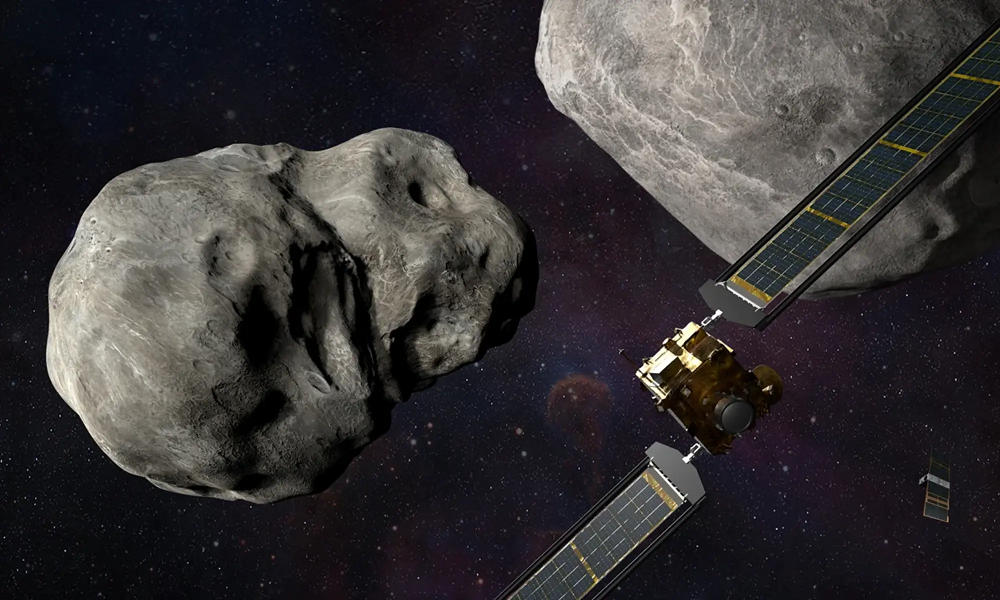Science & Technology
NASA’s DART mission to collide with an asteroid

A NASA spacecraft will deliberately slam into an asteroid called Dimorphos in the early hours of Tuesday morning to see if this kind of kinetic impact can help deflect an asteroid posing a threat to Earth.
The Double Asteroid Redirection Test mission, or DART, spacecraft is about the size of a school bus, CNN reported.
It has been traveling to reach its asteroid target since launching in November 2021 and will arrive at the asteroid system at 03:44 Tuesday Kabul time.
“We are moving an asteroid,” said Tom Statler, NASA program scientist for the DART mission. “We are changing the motion of a natural celestial body in space. Humanity has never done that before.”
The spacecraft is heading for a double-asteroid system, where a tiny “moon” asteroid, named Dimorphos, orbits a larger asteroid, Didymos.
Didymos. which means “twin” in Greek, is roughly 780 meters in diameter. Dimorphos measures 160 meters across, and its name means “two forms.”
At the time of impact, Didymos and Dimorphos will be relatively close to Earth — within 11 million kilometers, CNN reported.
The spacecraft is about 100 times smaller than Dimorphos, so it won’t obliterate the asteroid. Instead, DART will try to change the asteroid’s speed and path in space.
A briefcase-size satellite from the Italian Space Agency is traveling behind DART to record what happens from a safe perspective.
Three minutes after impact, the satellite, LICIACube, will fly past Dimorphos to capture images and video of the impact plume and maybe even spy on the impact crater.
The images and video, while not immediately available, will be streamed back to Earth in the days and weeks following the collision.
The James Webb Space Telescope, the Hubble Space Telescope and NASA’s Lucy mission will observe the impact.
No asteroids are currently on a direct impact course with Earth, but more than 27,000 near-Earth asteroids exist in all shapes and sizes.
The valuable data collected by DART will contribute to planetary defense strategies, especially the understanding of what kind of force can shift the orbit of a near-Earth asteroid that could collide with our planet.
